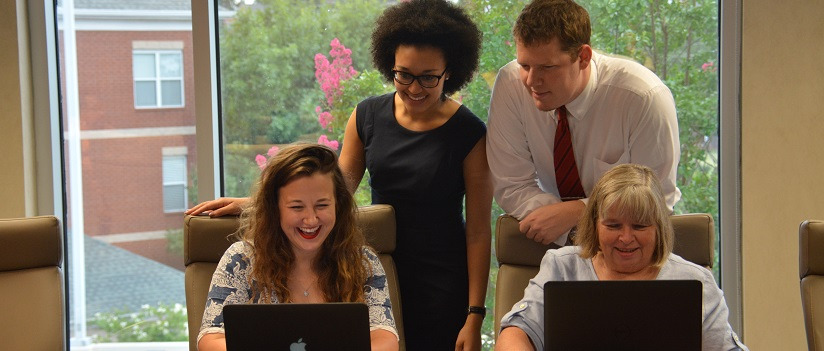Before you graduate from the USC School of Law you will be required to successfully complete a course in professional responsibility. This course will cover many important rules that regulate the practice of law as well as your ability to prosper to competently represent clients. Without oversimplifying the complex rules, it is important that you become fully aware of issues that may arise in the context of any pro bono legal work you may undertake even before you enroll in the professional responsibility course.
Ethical Issues
As a law student you may be viewed by non-lawyers as possessing legal knowledge and skills and there is no doubt that you will be asked for legal advice or assistance from family, friends and even strangers. It is unethical, and may even be illegal for you to offer legal advice, assistance, document drafting, any appearance of representation or in any way appear to be giving a legal opinion to a person or entity until you are fully licensed in that jurisdiction. If someone were to rely on your advice you could cause serious harm. A disclaimer that you are “just a law student” is not sufficient. Not only could you be subject to civil or criminal penalties but you could jeopardize your admission to the Bar.
In the context of pro bono work it is essential that you follow this rule. Not only could it cause damage to you or a client but also the reputation of the Pro Bono Program and the USC School of Law. It is important that you not give legal advise to a client or a prospective client. This does not mean that you cannot convey legal information that an attorney supervisor tells you to give to a client. It also does not mean that you can’t teach a curriculum about the law. It does mean that if you are asked a question about a specific legal issue you should never try to apply the law to a particular set of facts. When in doubt or things are unclear check with your attorney supervisor or the Director of the Pro Bono Program and explain to the client why you cannot provide an answer.
When volunteering in a legal setting you are likely to learn information about clients and potential clients. Almost without exception this information is “confidential” which means it is protected by the ethical obligation of confidentiality regardless of the source of the information and should not be discussed with others outside the office. Although you are not an attorney yet you have an obligation to your attorney supervisor to abide by the professional rules of conduct and keep all information confidential. This is true even after you leave a specific office regardless of whether the issue has been solved. Take special care when using any form of social media. Once sent you can’t take it back and the harm may have already happened. The office may have a policy, read and comply. Take special care when taking photos; you may not have permission to use them.
It is important for you to note that volunteering in one office and the subsequent exposure to confidential information may create a conflict of interest situation if you move to another office or project. You should keep track of any placements where you volunteer and inform your supervising attorney if you believe there is a potential for a conflict.
For example you volunteered for the Homeless Legal Clinic and your supervising attorney had you helping with a landlord-tenant case where the tenant was the client. Later in your law school career you volunteered at the local legal services office and were asked to help with a case against the same tenant.
The important point to remember is to not to try and solve these issues by yourself. You must inform your supervising attorney and let them made the determination on how to proceed. Your supervising attorney is responsible for overseeing all aspects of work done by non-attorneys to be sure they are complying the rules. Your violation of these rules could subject the attorney to disciplinary action and could cause the client harm.
Professionalism Issues
Civility is a key component to effective and professional communication. Being rude, aggressive, obnoxious or even distracted when talking with attorneys, the public or clients is not what is expected of USC Law Students engaged in pro bono work.
Respect and dignity for the law and lawyers are also key elements of a true professional. Honesty, fair play and integrity when dealing with clients, the public, attorneys and fellow law students are inherent in the concept of professionalism.
At all times and in all situations you should be diligent about the work you volunteered to do. At all times you should assume you are being observed and judged. act accordingly. Through your pro bono experience you will have the opportunity to show everyone that you have the ethic of excellence and can bring great honor and respect to yourself, your law school and your profession.
Should you have any concerns during any pro bono activity you should discuss then with Pamela Robinson, the Director of the Pro Bono Program.
Resources
SC Rules of Appellate Practice
- 401 Student Practice Rule
- 407 Rules of Professional Conduct
- Rule 1.6 Confidentiality
- Rule 1.7 Conflict of Interest
- Rule 5.5 Unauthorized Practice of Law
- Rule 6.1 Voluntary Pro Bono Publico Service
